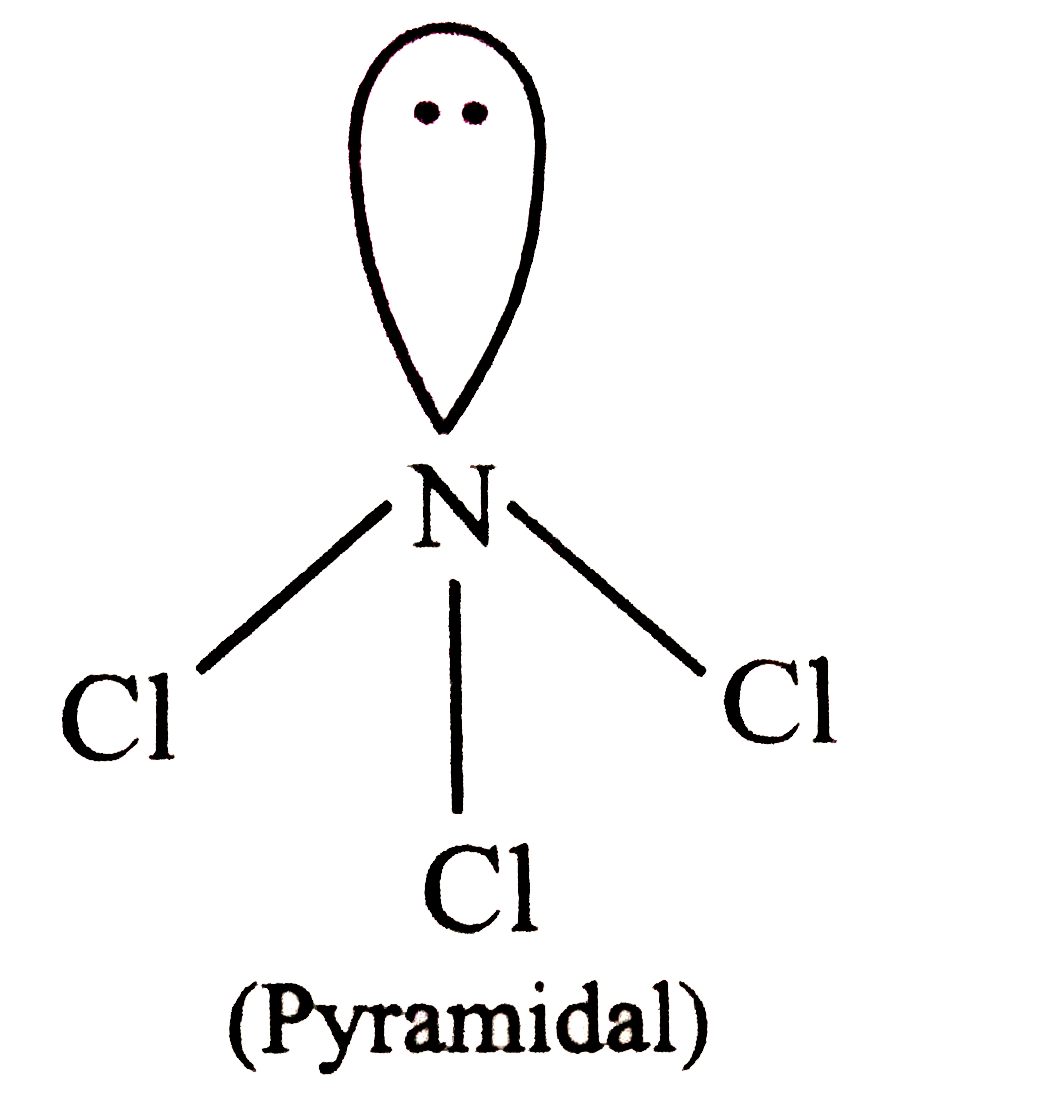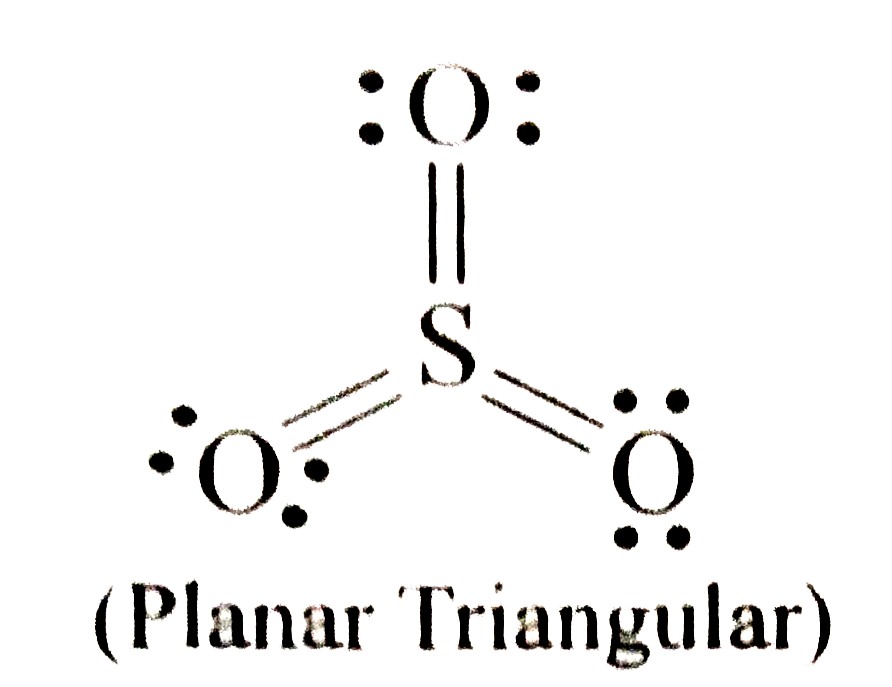Which are non-polar molecules?
I.NCl3 II.SO3 III.PCl5
The correct option is :
A
I only
B
II only
C
I and II only
D
II and III only
Video Solution
Text Solution
The correct Answer is:C

Electronegativity of N and Cl are equal (=3.0).
Hence, all the N-Cl bonds are non polar.

It is symmetrical . Hence, its dipole moment is zero,
i.e., it is non-polar .
In PCl5 . bond moments do not cancel out. Hence,
is is polar
|
Topper's Solved these Questions
- CHEMICAL BONDING AND MOLECULAR STRUCTUREBook:PRADEEPChapter:CHEMICAL BONDING AND MOLECULAR STRUCTUREExercise:COMPETITION FOCUS JEE (Main and Advanced)/ MEDICAL ENTRANCE SPECIAL (II. MULTIPLE CHOICE QUESTINS (WITH ONE OR MORE THAN ONE CORRECT ANSWER))
Explore 13 Videos
- CHEMICAL BONDING AND MOLECULAR STRUCTUREBook:PRADEEPChapter:CHEMICAL BONDING AND MOLECULAR STRUCTUREExercise:COMPETITION FOCUS JEE (Main and Advanced)/ MEDICAL ENTRANCE SPECIAL (III. MULTIPLE CHOICE QUESTIONS (Based on the given Passage/Comprehension))
Explore 11 Videos
- CHEMICAL BONDING AND MOLECULAR STRUCTUREBook:PRADEEPChapter:CHEMICAL BONDING AND MOLECULAR STRUCTUREExercise:ANALYTICAL QUESTIONS AND PROBLEMS WITH ANSWERS/SOLUTIONS (PROBLEMS)
Explore 3 Videos
- APPENDIXBook:PRADEEPChapter:APPENDIXExercise:MODEL TEST PAPER <br> (Section C )
Explore 9 Videos
- CLASSIFICATION OF ELEMENTS AND PERIODICITY IN PROPERTIES Book:PRADEEPChapter:CLASSIFICATION OF ELEMENTS AND PERIODICITY IN PROPERTIES Exercise:Competition Focus (Jee Main and Advanced / Medical Entrance ) ( Assertion - Reason Type Question ) (Type II)
Explore 12 Videos
Similar Questions
Knowledge Check
Which are non-polar molecules?
I.NCl3 II.SO3 III.PCl5
The correct option is :AI onlyBII onlyCI and II onlyDII and III onlyWhich of these molecules have non-bonding electron pairs on the central atom?
I.SF4 II.ICl3 III.SO2
The correct option is :AII onlyBI and II onlyCI and III onlyDI, II and IIIWhich of the following is a non-polar molecule?
ANH3BNaClCCCl4DH2O
Consider the following complexes.
(P) [Cr(CO)5(PF3)] (Q)[Cr(CO)5(PCl3)]
Select the correct options.
View SolutionConsider the following complexes.
(P) [Cr(CO)5(PF3)] (Q)[Cr(CO)5(PCl3)]
Select the correct options.
View SolutionWhich of the following halides cannot be hydrolysed at room temperature?
(I) TeF6
(II) SF6
(III) NCl3
(IV) NF3
Choose the correct code:
View SolutionCH3COOH+PCl5→'P', choose the correct option from the following
View SolutionNitrogen can form only one chloride with chlorine which is NCl3 whereas P can form PCl3andPCl5. This is
View Solution

